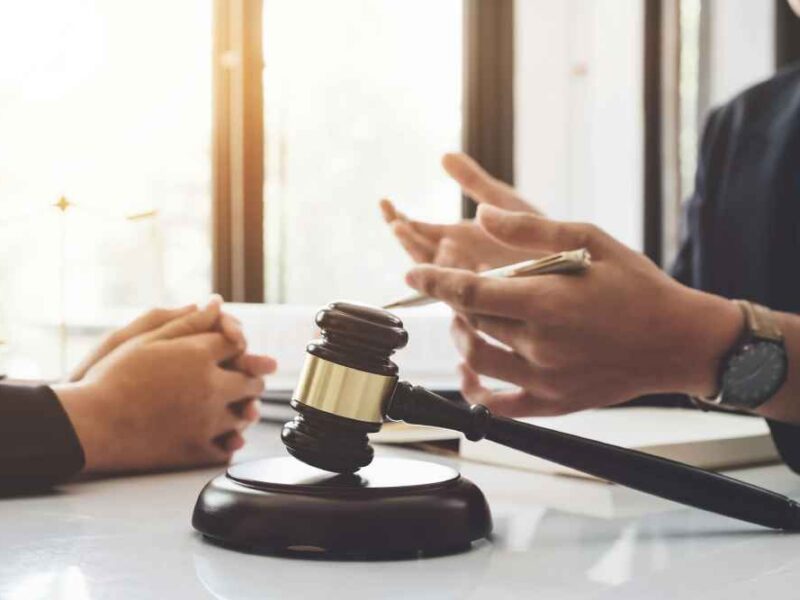When you’re a victim of a personal injury, one of the most critical decisions you will need to make is choosing the right attorney to represent you. This guide will walk you through the key factors to consider when making your decision.
Contents
- 1 1. Identifying Your Needs
- 2 2. Research
- 3 3. Interview Potential Attorneys
- 4 4. Case Assessment
- 5 5. Review Legal Documents
- 6 6. Discuss Fees
- 7 7. Lawyer’s Reputation
- 8 8. Experience and Track Record
- 9 9. Trial Experience
- 10 10. Continuing Education
- 11 11. Membership in Legal Organizations
- 12 12. Board Certification
- 13 Conclusion
1. Identifying Your Needs
a. Recognize Your Type of Case
The nature of your accident dictates the type of attorney you need. For instance, lawyers who specialize in car accidents are different from those who handle slip-and-fall cases. Therefore, understanding your case is the first step toward finding the right representation.
b. Understand the Level of Expertise Required
Just like doctors, lawyers specialize in different fields. For example, if you’ve been injured in Connecticut, you should contact a Hartford Personal Injury Lawyer who has the experience in handling cases similar to yours. It’s crucial to choose an attorney who has dedicated their practice to personal injury cases similar to yours. This ensures they have the necessary expertise and experience to handle your case effectively.
2. Research
a. Gather Recommendations
Start by asking your friends, family, or even your doctor for suggestions. Word-of-mouth recommendations from people you trust can be an excellent place to start your search.
b. Online Research
In today’s digital age, ample information about lawyers and their practices is available online. Be sure to check lawyers’ ratings on review sites and their reputations on professional networks and legal forums.
3. Interview Potential Attorneys
a. Ask Important Questions
During the interview process, ask about the lawyer’s past cases, their outcomes, their assessment of your case, and their communication style. This will give you a sense of their expertise and whether you can comfortably work with them.
b. Trust Your Instincts
You should feel comfortable with the lawyer you choose. If you don’t trust their judgment or feel uncomfortable with their answers, continue your search.
4. Case Assessment
a. Lawyer’s Opinion
Ask the attorney what they think about the merits of your case, how they will handle it, and what outcome they anticipate. Be wary of lawyers who promise specific amounts of money or large settlements, as every case is unique.
b. Case Handling Process
Understand the communication style and process the attorney implements with their clients. Do they periodically check in, or are they okay with you checking in on the status of your case?
5. Review Legal Documents
Thoroughly review all paperwork the attorney presents to you. Make sure you understand what you are about to sign. If you have any questions, don’t hesitate to ask.
6. Discuss Fees
Most personal injury lawyers work on a contingency basis, meaning they only receive payment if the case is settled. However, it’s essential to understand the percentage of your recovery they will charge and how they account for any additional legal fees.
7. Lawyer’s Reputation
A lawyer’s reputation can play a significant role in the outcome of your case. Lawyers who are well-respected in their field may be more effective in handling negotiations and achieving a fair settlement.
8. Experience and Track Record
The length of time a lawyer has been practicing, the type of cases they handle daily, and their track record in handling personal injury cases will significantly impact the outcome of your case.
9. Trial Experience
It’s crucial to find out if the lawyer has courtroom experience. A lawyer who regularly goes to court can be a significant asset, especially if your case goes to trial.
10. Continuing Education
Lawyers who regularly lecture at legal education seminars or write articles in legal publications are usually authorities in the field and highly respected by their peers. This can be an indication of their expertise and dedication to their practice.
11. Membership in Legal Organizations
Membership in legal organizations that specialize in representing injured people can be a good indicator of a lawyer’s commitment to their practice. These organizations often sponsor legal publications and continuing education programs, providing additional resources and networking opportunities for their members.
12. Board Certification
Board certification is a process that helps identify lawyers who have extensive courtroom experience and expertise in preparing cases for trial. Board-certified lawyers have passed an all-day examination and demonstrated their ability to handle complex cases effectively.
Conclusion
Choosing the right personal injury attorney is an important decision that can significantly impact the outcome of your case. By considering the factors outlined in this guide, you can make an informed decision and find the best possible representation for your case.



